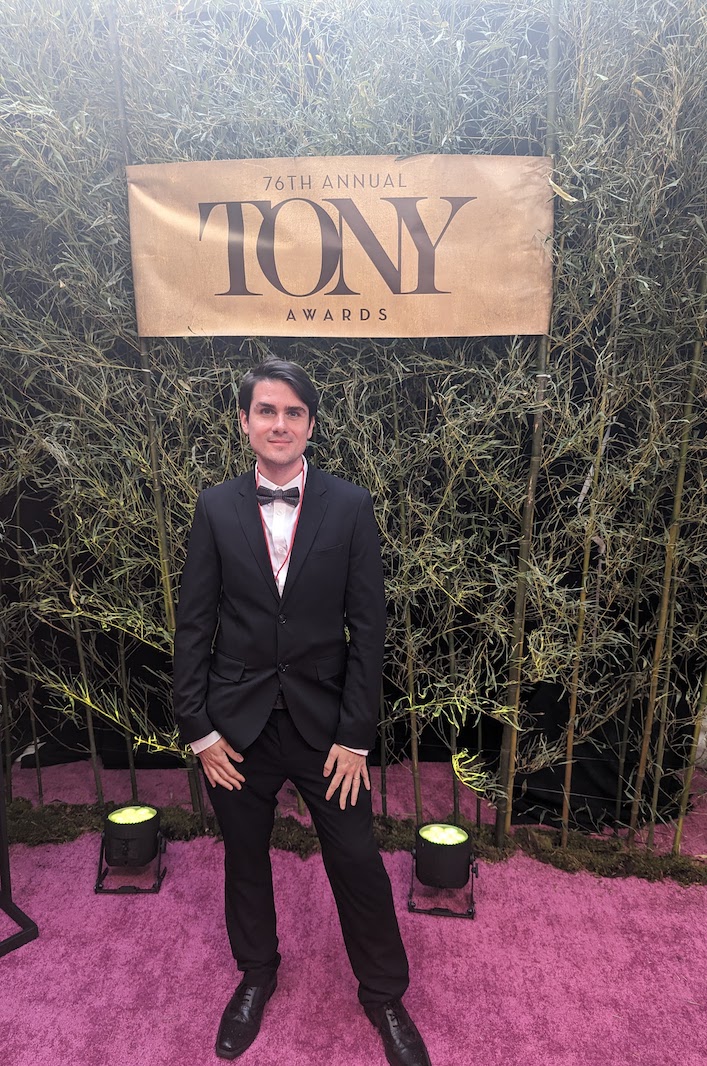Note: In my reflections, I’ve chosen not to name the specific PR agencies I worked with to avoid drawing direct comparisons. Both firms have distinct approaches that are equally valuable, providing me with diverse experiences and skills in the dynamic world of theater marketing.
Over the past two years, my writing took a significant pause as I balanced living in a new city and starting an exciting new career. During my first year, due to visa legalities, I was waiting for a work permit. During this time, I looked for internships, eager to learn the ropes despite the lack of pay. I applied to my first internship at a reputable PR firm in New York City, and to my delight, I was soon onboarded. As fate would have it, my work permit came through the very next week, allowing me to receive a stipend. Despite my frustration at not being able to secure a higher-paid job, the new experience felt like a golden opportunity not to squander.
I had always thought of myself as something of a theater enthusiast. I had been to dozens of West End shows, and my Broadway attendance was increasing after only a few months in the city. However, the West End and Broadway certainly had some marketing differences. While actors’ names have a pull to push tickets in London, it was not as prevalent as with Broadway stars.
In both West End and Broadway shows, the names of actors can be very important, but their significance can vary based on several factors.
Broadway:
- Broadway often places a high emphasis on star power. Well-known actors can significantly boost ticket sales and draw attention to a production.
- Celebrity casting is a common strategy to attract audiences, particularly for new shows or revivals.
West End:
- The West End also values star power, and casting well-known actors can be a major draw.
- However, there is sometimes a greater emphasis on the ensemble and the overall production quality. The reputation of the theater company, director, or playwright can be equally or more important than the actors themselves.
In both theatrical hubs, having a famous lead can be a significant advantage, but the overall importance of actors’ names can depend on the specific production and the expectations of the audience.
Furthermore, my understanding of theatrical names was limited to the few headliners I had seen in London. New York had a long roster of names to memorize. For the first few months, I had to learn on the go. While certain names came naturally to me, like the iconic Andre De Shields (initially due to his connection to The Wiz), other names seemed to evade me. Creating tip sheets for press events became a useful way for me to learn on the job.
Editing and publishing press releases became one of the joys and pains of my life. Due to the time sensativity and my dyslexia I would not always catch mistakes until after they went live. Working for the Tony’s was one of the highlights of my entire career. Regardless of the fact I was on the sidelines I loved being a part of the inner workings.
Despite the offer to renew my internship under a stipend, I had to decline, hoping to gain more financial stability and apply for an account coordinator role in the industry at a later date. However, after several months of searching, I realized how small the industry truly was. So the following year, after completing some administrative work, I joined another PR firm for a new internship to freshen up my skills.
I was surprised to see that both firms had very different approaches to managing interns. Each taught me unique sets of skills, with the second firm placing a stronger emphasis on social media marketing aspects. During this time, I learned more about promotional campaigns and tagging than I had ever learned while promoting my own book.
My takeaway from working in the industry during two different award seasons was that the UK and the USA had different approaches. However, I recognize that this observation is based solely on my personal experience.
The PR strategies for Broadway and West End shows have distinct differences, reflecting their unique cultural contexts and audience expectations:
Broadway:
- Star Power: Broadway heavily emphasizes celebrity involvement. High-profile actors often headline shows to attract media attention and drive ticket sales.
- Media Coverage: Broadway shows frequently leverage major American media outlets, including TV appearances, magazine features, and high-profile interviews.
- Social Media: There is a strong focus on social media campaigns targeting a global audience, leveraging platforms like Instagram, Twitter, and Facebook to engage with fans.
- Tourist Appeal: PR strategies often target tourists visiting New York City, promoting Broadway as a must-see experience.
- Award Shows: Broadway shows place significant importance on awards like the Tony Awards, which can greatly influence a show’s success and longevity.
West End:
- Reputation and Quality: The West End often emphasizes the quality and reputation of the production, director, and theater company over individual star power.
- Cultural Integration: PR campaigns may integrate more with British cultural outlets, such as the BBC, The Guardian, and other local media.
- Targeted Marketing: Marketing efforts can be more focused on local and European audiences, with campaigns tailored to British tastes and cultural references.
- Traditional Advertising: There is often a reliance on traditional advertising methods, including posters, flyers, and London Underground ads, to reach a wide audience.
- Tourism and Local Audience: While the West End also attracts tourists, there is a stronger focus on appealing to a local audience, with season ticket packages and promotions aimed at repeat visitors.
Both Broadway and the West End use a mix of traditional and modern PR strategies, but the balance and focus of these strategies are tailored to their respective markets and audience expectations.
In the world of PR, social time can be limited, with many colleagues not always keen on grabbing drinks after work. This dynamic may be more pronounced in UK culture compared to the USA. Having only worked for a wine PR firms in London I can not confirm this in comparison to West End PR agencies.
After my second internship came to an end, I wasn’t offered a contract renewal, and there were no open roles to apply for. I was saddened not to get a chance to pursue this career path further. However, I had to admit that both times the internship ended, I felt fatigued. The award season becomes all-consuming, and between red carpet openings and covering the press of each event, the lines between life became blurry. It certainly made me appreciate all the work of each play or musical just that little bit more.
In conclusion, my journey through internships in the PR industry provided me with invaluable experiences and insights into the dynamic world of theater marketing. From navigating the differences between Broadway and West End strategies to honing my skills in social media marketing, each opportunity taught me something new. While my path may have taken unexpected turns, the passion I developed for promoting the arts remains unwavering. As I continue to explore career possibilities, I carry with me a deep appreciation for the dedication and creativity that goes into every production. My time in the industry may have been brief, but its impact on my perspective and professional growth is lasting.


Be First to Comment